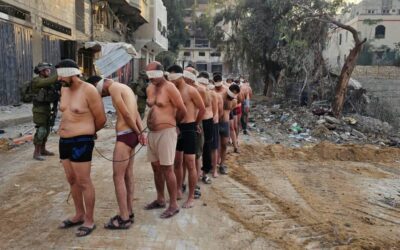175 000 Holocaust Survivors Live in Israel. Most Live on $101 a Month in Government Stipends
While some Holocaust survivors in Israel are entitled to 10,000 shekels a month, the majority have to get by with a fraction of that
 Israel prides itself on taking care of its 174,500 Holocaust survivors, but the government’s policy on stipends for them has been criticized as unequal and inadequate, with most survivors living on a small stipend of 4,000 shekels ($1,217) a year.
Israel prides itself on taking care of its 174,500 Holocaust survivors, but the government’s policy on stipends for them has been criticized as unequal and inadequate, with most survivors living on a small stipend of 4,000 shekels ($1,217) a year.
The policy divides survivors into multiple categories, each corresponding to a different sum of money, which the director general of the Social Equality Ministry says has caused ‘intolerable’ disparities.
The first category consists of about 54,000 survivors who immigrated to Israel up until 1953 after surviving Nazi ghettos and camps or being forced to live under a false identity during the Holocaust. They are entitled to a monthly stipend of between 2,435 and 6,160 shekels ($740 to $1,873), depending on the level of disability recognized by the government. Some 16,000 of them are eligible for expanded stipends of up to 11,200 shekels a month ($3,408).
The second category includes about 127,000 survivors, made up of about 61,000 who immigrated after 1953, mostly from the former Soviet Union, and some 59,000 who were persecuted in Tunisia, Libya, Iraq, Morocco and Algeria during the Holocaust. These roughly 127,000 survivors are entitled to only 333 shekels a month ($101).
Survivors who immigrated after 1953 suffer worse poverty than the first category, with 70 percent of these survivors, about 47,000 people, living beneath the povery line. A large portion of these survivors also lack pension schemes, as they arrived in Israel at an older age.
In November, a state comptroller’s report warned about the gap in stipends, “from which many survivors have been suffering for many years,” Social Equality Ministry Director General Yael Mevorach notes.
Mevorach says that over the past year Social Equality Minister Merav Cohen of Yesh Atid has worked to close this gap with the goal of providing an extra 1,000 shekels a month for survivors in the second group. Her efforts were unsuccessful, which Mevorach says was because it would require the addition of half a billion shekels to the budget of the authority in charge of Holocaust survivors’ rights.
“The gaps between stipends are intolerable and must be closed,” Mevorach says. The law would have to be amended to accomplish this goal, she adds.
The pandemic and survivors’ isolation
Since 2017, the authority for Holocaust survivors’ rights, in cooperation with the American Jewish Joint Distribution Committee, has run a special program to fight the problem of isolation among survivors, whose average age is 84 and a half. This initiative gets 3 million shekels a year and has about 6,000 volunteers who visit survivors on a regular basis to help ease their isolation.
Due to the coronavirus pandemic, one of the biggest issues for elderly people over the past year was the need for human contact.
In an effort to combat this, volunteers stayed in contact with survivors by telephone and provided other assistance. In an effort to facilitate better communication and forge a personal connection, the authority assigned each volunteer to a specific survivor.
A recent survey conducted by the leaders of this program showed that for 86 percent of the participants, “a weekly regular social connection dramatically reduced feelings of isolation,” Yossi Heiman, director general of JDC-Eshel, said. “Especially at this time when the pandemic is receding and a new routine is arising, it’s important not to leave anyone behind.”
- See also: 900 Holocaust survivors died of COVID-19 in Israel last year
- Israeli Holocaust survivors with dementia don’t get the government aid they’re entitled to
- Plan to name former right-wing politician to head Yad Vashem enrages Holocaust survivors
DISTRIBUTED BY PAJU (PALESTINIAN AND JEWISH UNITY)
PAJUMONTREAL.ORG/EN







